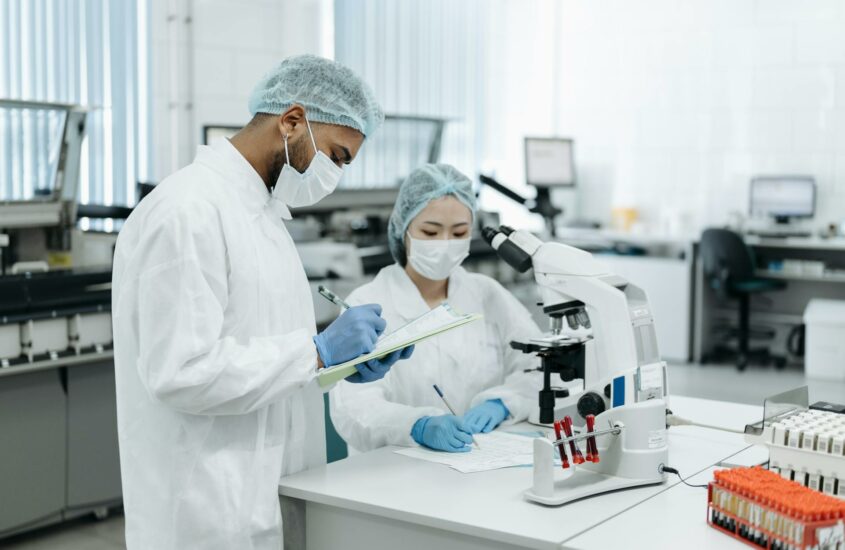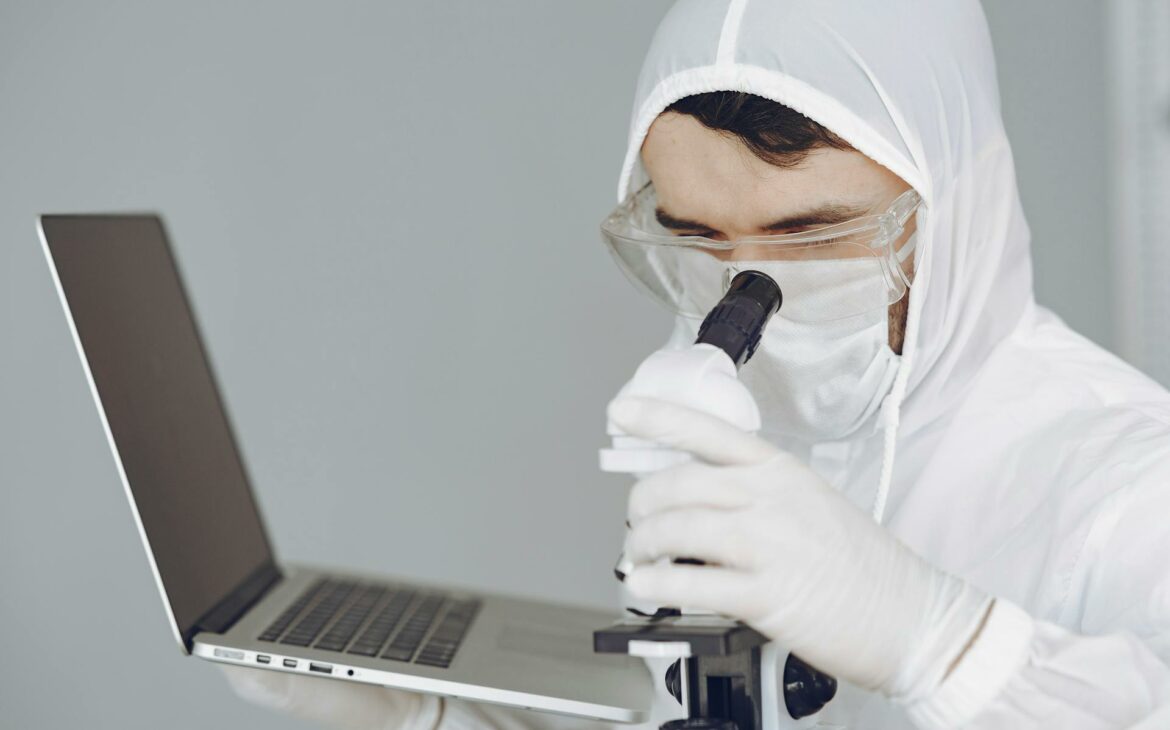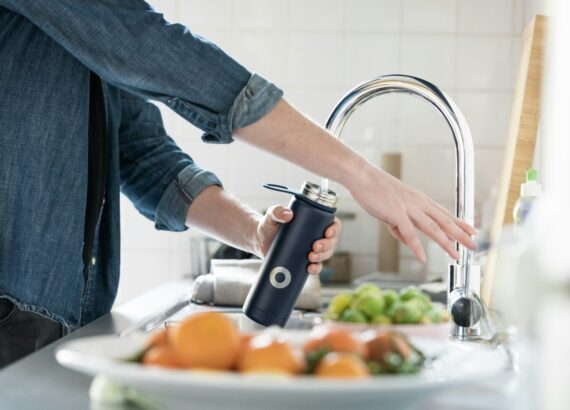From Sample to Breakthrough: The Microbiome Core Workflow Explained

Microbiome studies are uncovering the hidden connections between microbes and health. To better understand these connections, scientists must become familiar with what goes into each step of the microbiome research process.
As a leading facility offering premium microbiome sequencing services, we have a straightforward and efficient workflow at the Weill Cornell Medicine Microbiome Core to empower researchers in their studies.
In today’s blog, we will delve deeper into this process. We will explore each step, from sample submission to sequencing and Bioinformatics Analysis, to elucidate the workflow that enables us to transform raw samples into actionable insights.
The Importance of a Streamlined Microbiome Research Process
The complexities of microbial ecosystems demand a structured and precise approach. Precision in sequencing is paramount as it directly impacts the validity of research outcomes.
Without it, even the slightest inconsistencies during sample handling, processing, or analysis can generate inaccurate data. These data will lead to incorrect conclusions about the links between the microbiome and health.
The Weill Cornell Medicine Microbiome Core employs a highly organized methodology to address these challenges. The following sections detail the specific steps of our meticulous microbiome research process.
1. Sample Submission
The research process begins with sample submission and preparation. Let’s examine the steps involved in this stage.
Step 1: Initial Inquiry
Before submitting samples, researchers are encouraged to contact the Weill Cornell Medicine Microbiome Core team for a free consultation.
You can learn more about our microbiome sequencing costs and bioinformatics workflow. Plus, we can provide tailored guidance to help you clarify your research objectives and ensure your sample types meet project requirements.
Step 2: Creating an Agilent CrossLab Account
In the next step of the microbiome research process, researchers must create an Agilent CrossLab account. This account will be a central hub for tracking submissions, accessing updates, and facilitating smooth communication between researchers and the Microbiome Core.
Step 3: Payment and Approval
Researchers will then receive a custom quote based on the requested sequencing services. You can confirm payment details and complete the transaction through the Agilent CrossLab platform. Once all the documentation is verified, we can proceed to the next step.
Step 4: Receiving Custom Labels and Materials
Upon approval, we will provide researchers with custom sample tubes, labels, and collection materials, all free of charge. These materials ensure that samples are collected and labeled accurately to minimize the risk of errors during our microbiome workflow.
2. Sample Processing
The second stage of the microbiome research process involves sample reception and preparation for the sequencing phase.
Step 5: Shipping
Once samples are ready, researchers must carefully package them and send them to us. Refer to the following guidelines when sending us your samples to prevent degradation and ensure optimal data quality for our bioinformatics workflow.
Shipping Guidelines:
- Use the custom tubes and labels provided to ensure proper identification.
- Pack samples securely to prevent damage during transport.
- Consider using cold packs or dry ice for samples that require refrigeration.
- Notify the Microbiome Core before shipping to facilitate tracking.
Step 6: Sample Reception and Confirmation
Upon arrival, samples undergo a confirmation process. Our team verifies that all samples received are in good condition and match the accompanying documentation. This step of the microbiome research process will ensure that no samples are misplaced or incorrectly labeled.
Step 7: DNA Extraction and Quantification
The Microbiome Core employs the Promega Maxwell RSC 48 Instrument for high-throughput DNA extraction. This advanced technology allows for the rapid processing of up to 48 samples per hour, facilitating efficient microbiome workflows without compromising the quality of the extracted DNA.
The quantification process ensures that the DNA concentration is adequate for the subsequent steps.
Step 8: Library Preparation for Sequencing
Library preparation is the next critical step in microbiome research. We use the 16S Illumina Amplicon Protocol for 16S rRNA Sequencing. This method involves amplifying the 16S rRNA gene using a targeted primer set (515F-926R) for profiling microbial communities.
For Shotgun Metagenomic Sequencing, libraries are prepared using the Illumina Nextera XT Preparation Kit. This combination of protocols allows for immense flexibility and depth in exploring microbial diversity across various research applications and enhances bioinformatics workflow efficiency.
3. Sequencing
The next stage of our process involves sequencing the prepared libraries.
Step 9: Advanced Sequencing Technology
For this step of the microbiome research process, we employ cutting-edge sequencing platforms such as Illumina MiSeq and Illumina NovaSeq X to ensure high-quality data generation. These platforms facilitate various types of sequencing services we offer, including:
- 16S Sequencing: Targets specific regions of the 16S rRNA gene to profile bacterial taxa.
- Shotgun Metagenomic Sequencing: Offers a comprehensive view of the entire microbial genome, revealing both taxonomic composition and functional gene content.
- Oxford Nanopore Long-Read Sequencing: Provides ultra-long reads that help resolve complex genomic structures and enable in-depth analysis of microbial communities.
Step 10: Data Delivery
Results from the sequencing process are delivered through PubShare. This secure platform enables researchers to access their data conveniently. You will receive the data in both raw and processed formats to support your microbiome research.
4. Bioinformatics Workflow

The last step of the process involves Bioinformatics Analysis.
Step 11: Analysis and Interpretation
We integrate a comprehensive suite of bioinformatics services into our microbiome workflow, enabling researchers to derive impactful insights from sequencing data.
The types of analyses conducted include:
- Diversity Metrics: Analysis of alpha and beta diversity to assess the richness and evenness of microbial communities.
- Functional Profiling: Identification of metabolic pathways and functional genes within microbial populations.
- Statistical Comparisons: Utilizing advanced statistical models to interpret complex datasets and validate findings.
5. Continuous Support
Our dedicated team is available throughout the microbiome research process to provide ongoing support. We will answer any questions you may have and offer expert guidance to help you maximize the impact of your findings.
Advance Your Research With the Weill Cornell Microbiome Core
Our efficient process at the Weill Cornell Medicine Microbiome Core combines expert handling, advanced sequencing technologies, and a robust bioinformatics workflow to deliver reliable and meaningful insights.
With our affordable prices and white glove service, you can accelerate your research and unlock the secrets of the microbiome more effectively than ever. Contact us for a free consultation and initiate your microbiome research with our Ivy League-associated facility.



